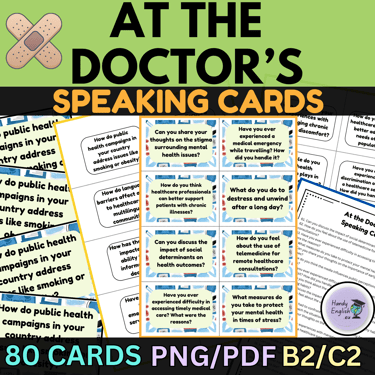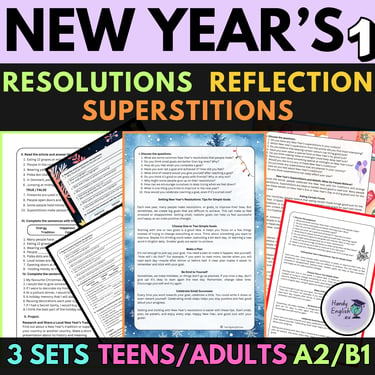[BLOG] Teaching Abroad: A Teacher’s Survival Guide #7: Handling Contracts and Visas for Teaching Abroad
Teaching abroad is an exciting adventure, but understanding contracts and visas can be a bit tricky. This guide breaks down the key steps to navigate your teaching contract, visa requirements, costs, and how to stay legal while working overseas.
Kaya
1/15/2025
Please keep in mind that the opinions posted on this blog are my own.
Everybody might have a different experience and opinions, and that's OK.
Teaching abroad is an exciting adventure, but before you pack your bags and head off to your dream destination, you need to sort out a few crucial things – like your contract and visa. These may not sound like the most thrilling parts of the process, but they’re definitely essential for making sure you’re legally allowed to work and live in another country. Navigating this part of your journey can feel like a minefield, but with a bit of guidance, it’s completely manageable. Let’s break it down.
Understanding the Teaching Contract
A teaching contract is your golden ticket to working abroad legally. Before you sign on the dotted line, it’s vital to understand what’s included in the contract. Pay attention to your salary, working hours, job responsibilities, and benefits (like accommodation or health insurance). Don’t be afraid to ask questions. Some contracts might look straightforward, but there could be hidden clauses that may affect your living situation or job security.
One thing that’s often overlooked is whether the contract includes any clauses for early termination or penalties if you decide to leave the job before your contract ends. If you’re offered a position abroad, make sure to read the fine print carefully. If you’re unsure about any part, it’s wise to seek advice from someone familiar with local labour laws or even from fellow teachers who’ve worked in the same country.
Visa Requirements and Types
The visa you need to teach abroad will vary depending on the country you’ll be teaching in, but it’s always an essential step in the process. Depending on the country, the most common types of teaching visas are either work visas or specific teaching permits. Some countries have a general work visa that covers various professions, while others have a dedicated visa category for teachers.
It’s important to apply for your visa as soon as you receive your contract, as visa processing can take time. Some countries may also require additional documentation like proof of your qualifications, background checks, or even medical exams. Always check the requirements well in advance to avoid any last-minute stress.
Sponsorship and Employer Support
One of the biggest advantages of teaching abroad is that many schools or institutions will sponsor your visa application. This means they’ll handle a large part of the paperwork and cover some or all of the associated costs. However, some schools may only offer partial sponsorship, or none at all, in which case you’ll need to bear the costs and handle the application yourself.
If your employer offers sponsorship, make sure they outline exactly what they will be doing for you. Will they handle the application process? Do they cover the visa fees? Will they provide support once you’re in the country? Clarity on these points is crucial to avoid any misunderstandings later on.
Costs to Expect
Speaking of costs, teaching abroad doesn’t come free. Even if your employer sponsors your visa, there will still be some fees and expenses that you’ll need to cover. Visa application fees, medical exams, translation services, and even travel costs can add up. It’s important to budget for these expenses in advance so that you’re not caught off guard.
Make sure you ask your employer upfront what expenses they’ll cover and what you’re expected to pay for. Some schools provide additional financial assistance for teachers relocating internationally, such as a relocation allowance or help with accommodation. These extras can make a huge difference, especially in countries where living costs are high.
The Length of Your Contract and Renewal Process
Teaching abroad often means committing to at least a one-year contract, but this can vary depending on the employer and location. Some contracts are renewable, and some are not, so make sure you understand the terms around this before you sign. If you love your job and want to stay longer, you’ll want to know whether you can easily extend your contract or if there are any limitations on how long you can stay in the country.
If your visa is tied to your contract, this renewal process will also be a key factor. In many cases, your employer will be responsible for helping with the visa extension, but it’s still important to keep track of the dates and ensure everything is renewed on time.
Staying Legal and Avoiding Common Pitfalls
One of the most important aspects of teaching abroad is staying legal. Working without the correct visa can lead to fines, deportation, or even being banned from returning to the country in the future. Always ensure your contract and visa are in order before you start teaching.
It’s also a good idea to keep track of your visa’s expiration date and know the process for renewing or extending it. Some countries require teachers to leave the country and re-enter to renew their visa, while others offer a simple extension process. Ignoring these details can cause unnecessary problems down the line, so stay on top of your paperwork and ask for help if you’re unsure about anything.
Navigating contracts and visas when teaching abroad can feel daunting, but with a bit of planning and organisation, it doesn’t have to be overwhelming. The key is understanding what you’re signing, knowing the visa requirements for your chosen destination, and ensuring that you stay legal throughout your stay. By staying informed and asking the right questions, you’ll set yourself up for a successful and stress-free experience teaching abroad.






Get in touch!
Copyright Handy English 2021
”I used this with an adult ELL tutee of mine. I appreciate that the language was accessible for multiple proficiency levels, but the content wasn't obviously geared for children and still useful for older learners.”
August 7, 2023
”Another great resource from Handy English! I used it to give my students more in-depth practise into quantifiers and restaurant language. It's great resource and can be used after the students learn the basics of language for the restaurants and quantifiers. Definitely helped solidify what they learnt.”
February 5, 2023
”Love this resource. Great for fast finishers and also those in small ESL groups. Great for all macro skills as discussion and brainstorming is a great precursor for writing submissions.”
- Gail M.
June 25, 2023
Here's what other ESL Teachers say
Handy English: 4.8/5
”This was a wonderful resource for my students. It helped me introduce them easily to new concepts and it was quite engaging. Thanks!”
- Kiara B.
October 10, 2023
”Great resource for learning vocabulary, which supports comprehension and speaking skills.”
- Lori-Ann W.
September 29, 2023
”What a great way to get a healthy debate going. My students struggle with impulse control and they all have kept it kind and appropriate.”
- Alicia H.
September 17, 2023






